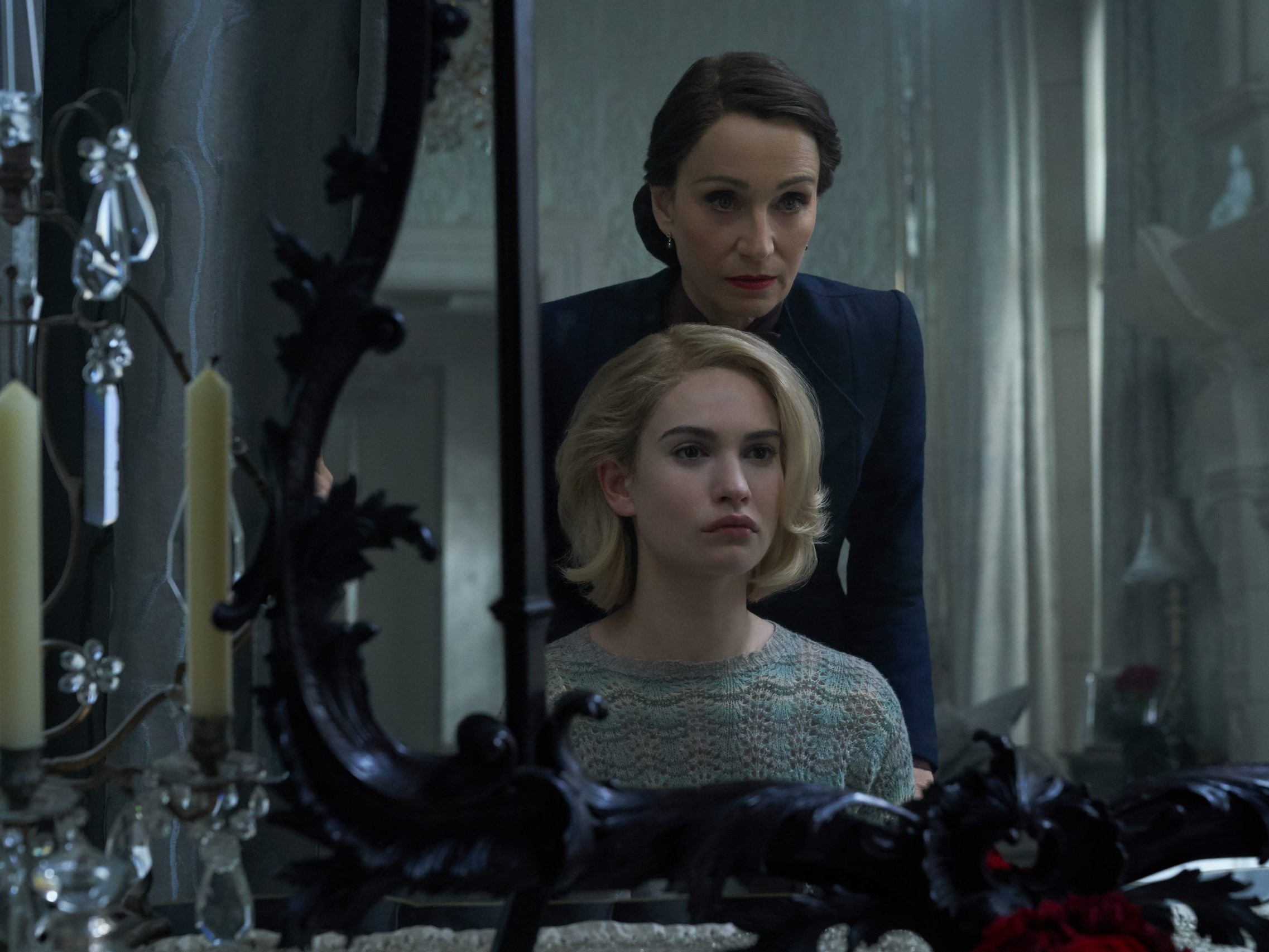Spoilers for the book and film of “Rebecca” are in this article, so beware!
Trigger warning for this piece: suicide.
Netflix recently dropped a film adaptation of Daphne du Maurier’s quintessential gothic novel “Rebecca,” starring Armie Hammer as Maxim de Winter and Lily James as Mrs. de Winter, the unnamed protagonist of the film.
Frankly, this film was a massive disappointment to me as a gothic genre aficionado. This is not to disparage the performances of the cast. Hammer and James performed beautifully, along with Kristin Scott Thomas as Mrs. Danvers.
The movie’s downfall is its writing and construction. It’s supposed to be a gothic romance, not a milquetoast disappointment of a film that seemingly lacks a genre. It isn’t anything and it certainly isn’t gothic. You want a good gothic movie? Stream “Crimson Peak.”
“The emotions in Gothic romance are fever-pitched. This new ‘Rebecca’ is just too damn sane,” critic Sheila O’Malley wrote in her review of the film. She’s right. The gothic is about madness, insanity, seeing things that aren’t there and doubting whether or not you still have your mental faculties. Look at “The Picture of Dorian Gray” by Oscar Wilde, or “Jane Eyre” by Charlotte Brontë. These are hearty, gothic novels dripping with the occult and wrestling with the issues of morality, psychology and madness. “Rebecca” the novel does that. “Rebecca” the film falls comically short.
Let’s start from the beginning of the film and trace its failures. Mrs. de Winter, still unnamed and unwed, works as a maid for an obnoxious rich woman on holiday in Monte Carlo. It’s here that she meets Maxim de Winter, a handsome and wealthy man plagued by rumors of his melancholia following his wife, Rebecca’s death. Despite some red flags and inconsistent behavior, Maxim seems the perfect romantic gentleman, taking Mrs. de Winter on a variety of outings before seducing her on a picturesque beach.
When her employer decides to leave for the United States, Maxim proposes marriage to keep Mrs. de Winter with him, promising her a home in his estate of Manderley. Manderley is gothic in its architectural style and in the creeping dread that lurks behind its gates. Yet, Mrs. de Winter is excited to make it her home.
Enter Mrs. Danvers, the deeply creepy and sinister housekeeper of Manderley. Thomas is a fantastic actress in the role. She manages to scare me deeply, on a psychological level. She’s not a horror villain, but an expert gothic one. She almost convinces Mrs. de Winter to kill herself after tricking her into dressing up like Rebecca and deeply upsetting Maxim. She uses manipulation to exert control over the entire household, including the staff and Maxim.
Mrs. Danvers is not a failure. In fact, she is the only character that I feel follows the source text and puts me into the gothic vibe. She is the shining light in this disappointment of a film.
The biggest failure of the film is Maxim. Yes, he does display concerning behavior during his courtship of Mrs. de Winter. However, he shifts so suddenly upon his arrival at Manderley that it leaves the viewer spinning, and not in a good way. There is no natural shift, no gradual sense of dread built over time. Instead, he is abruptly a different person, which does not help the film in any way. It would have been more in-tune to the gothic to have him change gradually and have Mrs. de Winter doubt the man she married as their marriage progressed instead of straight after the honeymoon.
Another aspect of the film I did not enjoy was not showing Rebecca. I understand the artistic choice behind it and the decision to have a faceless ghost almost ruin the de Winters, but I think at the end it would have increased the emotional impact to show Rebecca’s face, just once, even if it was fleeting. Her facelessness almost diminishes the impact of her hold over Maxim and Mrs. Danvers. While perhaps to some that adds to the unsettling nature of Manderley, to me it made the fear I was supposed to encounter feel hollow.
O’Malley wrote, “There are a couple of very effective hallucinatory sequences where the new Mrs. de Winter has nightmares, vines erupting from the floor of the great hall, sucking her down into their clutches, or a hallucinatory moment where the attendees of a masquerade loom at her, chanting gleefully, ‘REBECCA. REBECCA.’ That’s more like it, that’s the spirit. Without it, it’s hard to even perceive what is happening.”
The nightmares Mrs. de Winter experiences are the only encounter the audience has with anything supernatural. Everything else is oddly intangible. I wanted to see a real ghost or feel the impact of Rebecca beyond her pristinely preserved room. Rebecca only exists in the nightmares; those are her solitary domain.
O’Malley also critiques the performances of Hammer and James. She wrote, “Nobody has a firm grasp on what exactly they are supposed to be playing. There’s not a clear enough sense of collective suppression, desires unspoken, sexual/psychological torment so intense it leads to madness.”
There is no torment. The revelation that Maxim killed Rebecca comes easily — too easily. If he really lived with the guilt of having murdered his wife, even if she was a terrible person, he would display it sooner or hold it closer to his chest. Mrs. de Winter is also so quick to forgive him. Even if Rebecca deserved it, would it not take you a moment to grapple with the fact that you married a murderer? That alone would be enough to drive you mad, without the menacing Mrs. Danvers making your life a living hell and encouraging you to take your own life.
The characters are too put together. I wanted more pain, more agony, on the screen. “Rebecca” the novel is rife with suffering, though it does end mostly happily. The film ties up everything too neatly, while providing too simple a narrative. The gothic lives in the chaos and chaos is absent from this film.

















